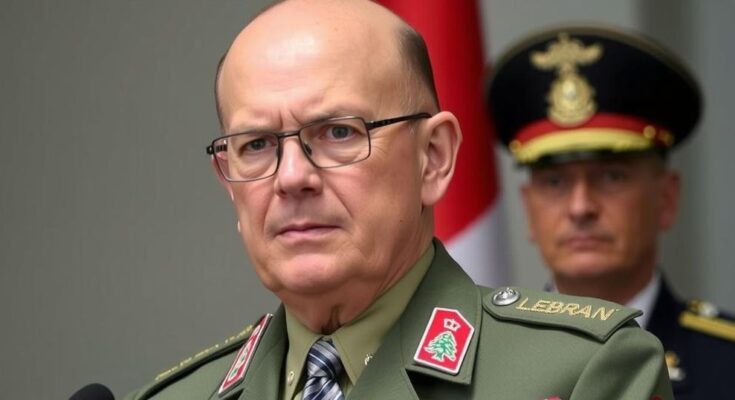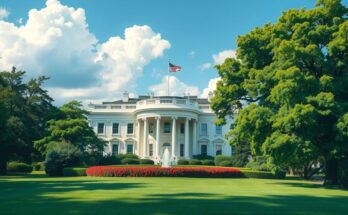Lebanon’s presidential vacancy may soon end as Army Chief Gen. Joseph Aoun emerges as a leading candidate, potentially replacing Hezbollah’s Suleiman Frangieh. French envoy’s recommendation and political dynamics indicate a possibility for consensus in the upcoming parliamentary session, crucial for electing a new president, amid long-standing political divisions.
BEIRUT: As the Lebanese parliament prepares for another attempt to elect a president, the prospect of Army Chief General Joseph Aoun emerging as the leading candidate is gaining traction. Reports indicate that Hezbollah’s preferred candidate, Suleiman Frangieh, may withdraw from the race, potentially paving the way for Aoun’s candidacy. French envoy Jean-Yves Le Drian’s recent visit has also highlighted Aoun’s nomination, as he has been recommended for consideration.
Political dynamics suggest that if General Aoun receives support from Hezbollah and the Amal Movement, he could achieve a significant majority, thus avoiding the need for a constitutional amendment to serve as president while still commanding the army. Prime Minister Najib Mikati expressed renewed optimism about the electoral process, stating his hopes for a new president after an extended vacancy since October 2022.
Despite past failures to elect a president due to political disagreements, the current climate reveals a possibility for consensus among various parliamentary factions. The upcoming electoral session, set to be the thirteenth such session, represents a critical moment for Lebanon’s political future, as ongoing tensions, including conflicts with Israel and Hezbollah, have diminished the pool of candidates.
The political landscape involves numerous contenders, including Samir Geagea, Elias Al-Bayssari, and other legislators who are less favored or lack unanimous support. As discussions continue among parliamentary blocs, there remains a hopeful outlook for a decision that could stabilize the country’s leadership and governmental structure. The Maronite Archbishops Council has echoed the call for a president who can unify the nation, emphasizing the importance of national deliberation and political neutrality in overcoming domestic and regional conflicts.
The ongoing political deadlock in Lebanon has left the presidential office vacant for over 26 months following the end of former president Michel Aoun’s term in October 2022. Various attempts to appoint a successor have been thwarted by intense disagreements among political factions regarding viable candidates. Recent shifts in candidate support continue to shape the political landscape as factions aim to reach a consensus for electing a new president. General Joseph Aoun’s potential candidacy emerges amid reports that Hezbollah’s favored candidate, Suleiman Frangieh, may withdraw from the election race. The dynamics of parliamentary support and potential constitutional requirements for candidates serving in active roles further complicate the situation. With considerable influence from external parties, such as the French envoy’s recent recommendations, the upcoming parliamentary session signifies a pivotal point in Lebanon’s path toward reinstating leadership stability.
In conclusion, the likelihood of General Joseph Aoun assuming the presidency of Lebanon appears increasingly feasible as he garners potential support from key political factions. The involvement of influential figures and the evolving sentiment among the parliamentary blocs highlights a renewed atmosphere of optimism. As Lebanon seeks resolution after prolonged political stagnation, the forthcoming electoral session stands as a crucial opportunity to foster national unity and address pressing challenges facing the nation.
Original Source: www.arabnews.com




